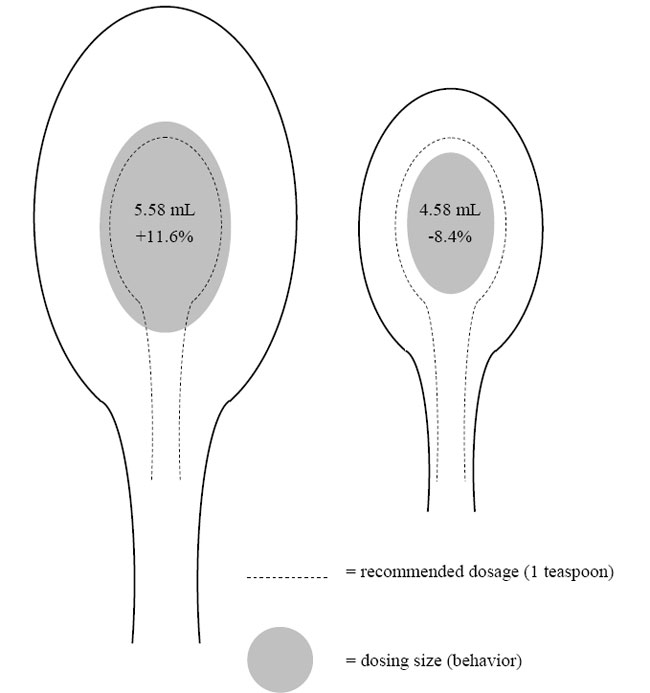Wrong Spoon Size Can Cause Medicine Mistakes

When pouring out doses of cold medicine, you may want to ditch the kitchen spoon for a more exact measuring device, a new study suggests. Depending on the spoon’s size, people tend to pour too little or too much.
The study involved 195 university students who were asked to pour a teaspoon (5 mL) of liquid medicine into a medium-sized spoon and a large spoon. To give them a better understanding of the volume of a teaspoon, the researchers had students measure out the medicine first in an actual teaspoon before trying it out in the other two spoons.
Participants poured an average of 4.58 mL, or about 8 percent less than prescribed, into the medium spoon, and 5.58 mL, or nearly 12 percent more for the larger spoon. Even so, the students indicated above-average confidence that their pouring was accurate.
"Twelve percent more may not sound like a lot, but this goes on every four to eight hours, for up to four days," said lead researcher Brian Wansink, director of the Cornell Food and Brand Lab. "So it really adds up — to the point of ineffectiveness or even danger."
The participants were also in atypical conditions, pouring cold medicine in a well-lit room in the middle of the day. "But in the middle of night, when you're fatigued, feeling miserable or in a rush because a child is crying, the probability of error is undoubtedly much greater," he said.
Essentially, an optical illusion came into play called the size-contrast effect, in which we use one object as a reference point from which to measure a nearby object. For instance, an average-height guy standing next to an extremely tall friend would appear far shorter than if he stood next to a more petite man.
"That's what's going on with pouring the medicine. One teaspoon into a three-ounce spoon looks like nothing, so you pour more," Wansink told LiveScience. That led to overdosing. The opposite effect plagued the medium-sized spoon.
Sign up for the Live Science daily newsletter now
Get the world’s most fascinating discoveries delivered straight to your inbox.
About 70 percent of us grab silverware spoons to take liquid medicine, according to the Mayo Clinic. With the new study results, Wansink recommends instead that consumers use a measuring cap, dosing spoon, measuring dropper or a dosing syringe.
The study is detailed in the Jan. 5 issue of the journal Annals of Internal Medicine.
- The Most Popular Myths
- 7 Solid Health Tips That No Longer Apply
- Top 10 Worst Hereditary Conditions
Jeanna Bryner is managing editor of Scientific American. Previously she was editor in chief of Live Science and, prior to that, an editor at Scholastic's Science World magazine. Bryner has an English degree from Salisbury University, a master's degree in biogeochemistry and environmental sciences from the University of Maryland and a graduate science journalism degree from New York University. She has worked as a biologist in Florida, where she monitored wetlands and did field surveys for endangered species, including the gorgeous Florida Scrub Jay. She also received an ocean sciences journalism fellowship from the Woods Hole Oceanographic Institution. She is a firm believer that science is for everyone and that just about everything can be viewed through the lens of science.
What are mRNA vaccines, and how do they work?
Deadly motor-neuron disease treated in the womb in world 1st









